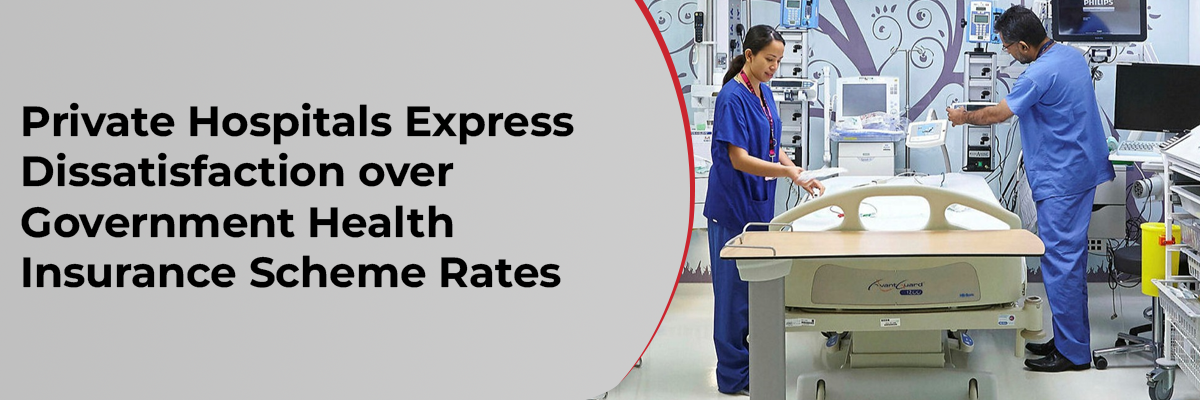
 IJCP Editorial Team
IJCP Editorial Team
Private Hospitals Express Dissatisfaction over Government Health Insurance Scheme Rates
The response of private hospitals to the government's Arogya Karnataka health insurance scheme has been less than enthusiastic, with only 10-12% of them being empanelled. Medical experts argue that the rates offered by the scheme are not sustainable, leading to financial losses for hospitals.
Dr. Govindaiah Yatheesh, President of the Private Hospitals and Nursing Homes Association (PHANA), highlighted the non-viability of providing quality healthcare under the scheme as a major deterrent. Dr. Pavan Patil Gadag, Managing Director and Minimal Access Surgeon at NB Patil Hospital, one of the few hospitals participating in the scheme, expressed disappointment that the government does not consider the perspectives of service providers when implementing such programs. He noted that hospitals incur losses due to the low reimbursement rates.
Dr. Alexander Thomas, President of the Association of Healthcare Providers-India (AHPI), stated that hospitals are unhappy with the scheme's terms, resulting in only a small percentage of private hospitals accepting patients under the program. He suggested that under the scheme, not everyone should receive completely free treatment and advocated for co-payment by those who can afford it.
Meanwhile, the referral system adopted by Karnataka has become a hindrance for patients seeking care. The requirement for government doctors to issue referral letters often leads to conflicts between the government and private healthcare systems. Public health activists argue that in other states, patients can directly seek treatment at private hospitals under similar schemes and propose that Karnataka should follow suit.
Dr. Sylvia Karpagam, a public health doctor and researcher from Bengaluru, believes that the current model should be scrapped and better investments in public health facilities must be encouraged across all levels of care. She argues that the health insurance model fails to serve patients because private healthcare facilities remain dissatisfied despite high-profit margins. On the other hand, Dr. Thomas considers Ayushman Bharat one of the best insurance schemes globally but suggests that it requires an overhaul. He emphasizes the significance of the private sector, which constitutes more than 70% of hospitals and cannot be ignored.
The concerns raised by private hospitals highlight the need for dialogue and collaboration between the government and healthcare providers to establish sustainable and mutually beneficial health insurance schemes that prioritize the well-being of patients and address the financial concerns of healthcare institutions.

IJCP Editorial Team
Comprising seasoned professionals and experts from the medical field, the IJCP editorial team is dedicated to delivering timely and accurate content and thriving to provide attention-grabbing information for the readers. What sets them apart are their diverse expertise, spanning academia, research, and clinical practice, and their dedication to upholding the highest standards of quality and integrity. With a wealth of experience and a commitment to excellence, the IJCP editorial team strives to provide valuable perspectives, the latest trends, and in-depth analyses across various medical domains, all in a way that keeps you interested and engaged.










.jpg)








.jpg)


Please login to comment on this article